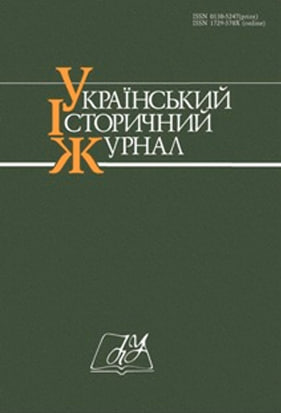Daily Life of the Population of Middle Dnister Region at the Beginning of the Twentieth Century (A Case Study of Documentary Postcards)
DOI:
https://doi.org/10.15407/uhj2022.01.031Keywords:
Middle Dnister Region, daily life, borders, postcardsAbstract
This research analyzes the routine of the inhabitants of the Russian-Austrian-Hungarian frontier of the Dnister river basin in the early twentieth century.
Research methodology is based on the application of the methods of analytical-synthetic, historical-cultural attribution, iconographic and comparative analysis.
Scientific novelty of the studio is to expand the idea of the structures of daily life in Middle Dnister Region on the period before and during the World War I. The source for the experience of the inhabitants of Middle Dnister Region within the Russian-Austrian-Hungarian border zone, in their relations with the surrounding world of nature and society in the early twentieth century, is the documentary postcards from private and museum collections.
Main results and conclusions. The implementation of the postcards for reconstructing the micro-stories of daily life of the inhabitants of Middle Dnister Region confirmed their high informational potential; allowed to determine the geographical and ecological conditions of their life, work, needs (housing, food, clothing), the possibility of meeting them; to deepen the analytical study of certain psychological and historicalcultural topics of the history of the given region, to suggest the ways of understanding of day-to-day life and human behavior. The emphasis is placed on the fact that in the early 1900s the navigable Dnister played a significant role in the revival of socio-economic life and transport connections in the eastern regions of Cisleithania and Podillia, Bessarabia and Kherson provinces. The number of small rivers on postcards and industrial enterprises on the river bed or on the banks and tributaries, archetypes of inhabitants of Bessarabia, Northern Bukovyna, Eastern Halychyna, Podillia testify the given fact. It is proved that the World War I radically changed the daily life of the inhabitants of the border zone and became for most them a test on social and moral maturity, psychological fortitude.


